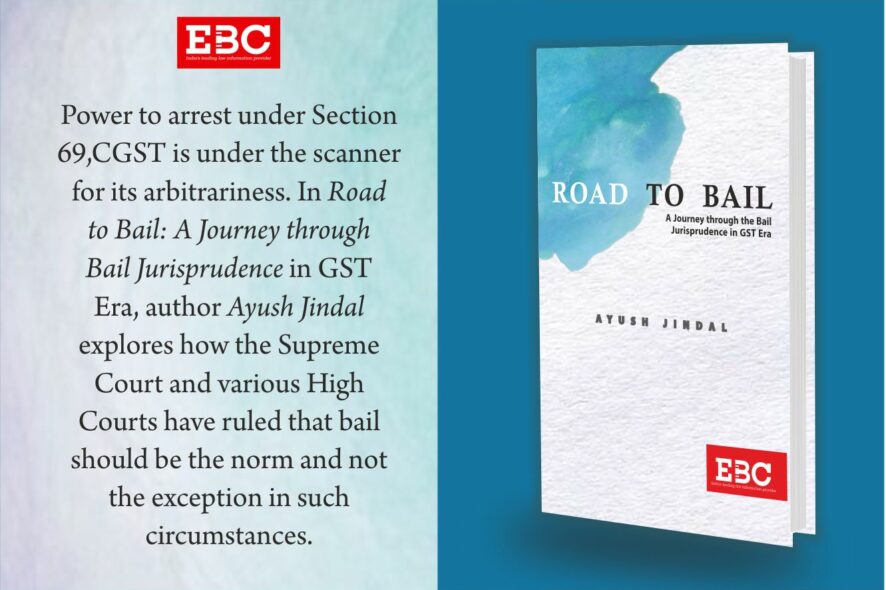Power to arrest under Section 69, CGST is under the scanner for its arbitrariness. The author explores how the Supreme Court and various High Courts have ruled that bail should be the norm and not the exception in such circumstances.
Through his book, ‘Road to Bail: A Journey through the Bail Jurisprudence in GST Era’, Ayush Jindal has put together all relevant judgments of the Supreme Court and the High Courts where the Court has frowned upon arrest under Section 69 of CGST, 2017 and granted bail to the accused. It is his endeavor to reach out to those who are affected, and to their lawyers, as to how to defend their clients by putting together resources and judgments of higher courts in similar cases. He also wants to highlight to maximum audiences the draconian implications of the law and its impact on the people. The blue in the cover of his book signifies freedom. Freedom from government overreach. Freedom from actions of government officers who go beyond their mandate in law, and encroach upon people’s liberty. And freedom for those who are caught in the web of its excesses.
The book is an attempt by the author to decode the bail jurisprudence under the Central Goods and Services Act, 2017. GST is still an infant law, however scores of arrests have taken place in a short period of time under this law. Upto January 2020, over 16,000 cases of GST evasions have been detected and 336 people arrested.
It highlights the important facts that courts consider while hearing cases of bail under the newly incorporated law of CGST. The author analyses various judgments of the Supreme Court and High Courts including an important Gujarat High Court judgment which states that a commissioner can invoke power to arrest under Section 69 of CGST if he has “reason to believe” that specific offences have been committed. Those accused under the law are languishing in jail in the pre-trial stage for over 1.5 years when the maximum sentence they can get on conviction is 5 years. The author analyzes how judicial discretion is being used differently by each court leading to ambiguity and confusion in the process of law.
Description of the chapters
The book is divided into six chapters. The first chapter gives an insight into the important provisions relating to arrest under the CGST Act and explains the rationale behind the provision of arrest under this law. Chapter 2 of the book delves into the general principle of bail under economic offences. Both regular and anticipatory bails are covered in the chapter. In Chapter 3, the author has listed six judgments of the Supreme Court where the Court had ruled that no coercive action be taken against defaulters, alongwith list of cases from various High Courts which had given ruling on cases of bail under CGST.
In Chapter 4, the author has discussed the important judgments of the Supreme Court relating to arrest under Section 69 of CGST. In Chapter 5, the challenge to constitutional validity of certain provisions of the CGST Act has been discussed along with a detailed discussion on grounds of bail. Lastly, in Chapter 6, the author concludes the book by summarizing the issues faced because of the ambiguities in the law.
The book has discussed important questions with respect to arrest under CGST such as whether any laxity in making arrests should be given as India is taking time to adapt to its biggest tax reform and whether by arresting are we fulfilling GST’s objective of realizing loss in revenue. Judgments from across the country have been included to make the book as comprehensive as possible. This book is a must-read for GST practitioners and students of law.
About the author
Ayush Jindal is a practicing lawyer. He specializes in criminal law and white-collar crimes.
About the book
The book can be book from EBC Webstore through this link. It is also available on Flipkart and Amazon.






